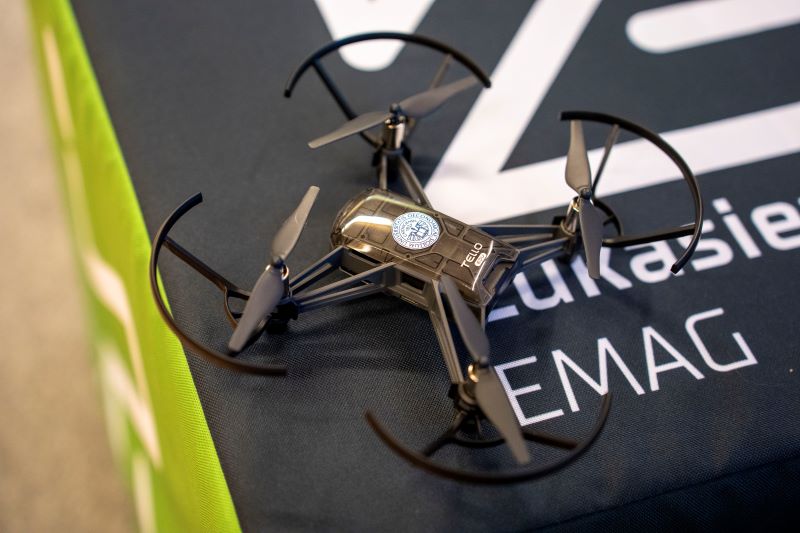Each of 50 Weeks in the City of Science features a text about selected research in a given subject area carried out by scientists from the universities forming the Academic Consortium Katowice City of Science. The texts we publish give insight into the diversity of issues scientists deal with and show the research potential that is dormant in the universities of the consortium.
| Agnieszka Kliks-Pudlik |
Artificial Intelligence is the topic of the fifth of 50 Weeks in the City of Science. Solutions relying on it not only contribute to the development of the economy or new technologies but have a significant impact on the improvement of human quality of life e.g. as communication assistance tools for the Deaf or by facilitating patient diagnosis.
‘Thanks to algorithms, artificial intelligence can analyse data, recognise patterns, make decisions, and even communicate similarly to humans. It is a fascinating research area, which opens doors to many new possibilities’, says Jan Kozak, PhD, DSc, Assoc. Prof. of the University of Economics in Katowice, the Artificial Intelligence Week curator.
As part of the Artificial Intelligence Week, participants found out how AI solutions are applied in various areas | EMAG archives
Pioneering algorithms
Activities centred on the development of artificial intelligence are conducted by scientists from the Department of Machine Learning of the University of Economics in Katowice, headed by Jan Kozak, PhD, DLitt, Assoc. Prof. of the University of Economics in Katowice. The specialists develop new algorithms and work on their practical applications.
One of their achievements is a novel combination of machine learning and swarm intelligence, especially regarding their classification and optimisation. Their work resulted in the construction of a classificator, i.e. an algorithm assisting in human decision-making, in a more ‘abstract’ and closer to optimal way. Those algorithms earned scientific recognition and influenced further research in this area
Moreover, the researchers at the Department of Machine Learning conducted pioneering research in machine learning, focusing on detecting potential gambling addiction problems.
‘This highly-influential initiative used artificial intelligence to develop identification and assistance tools for people with gambling problems, thus showing the practical use of academic research’, says Jan Kozak, PhD, DSc, Assoc. Prof.
The employees of the University of Economics in Katowice also cooperate with the socio-economic environment on projects related to, among other things, the application of AI in management and economics, data anonymisation (a process designed to make it impossible to link data to specific users) and improving communication for Deaf people.
Analiza ogromnych ilości danych
Research on artificial intelligence is carried out also by scientists from the Silesian University of Technology, centred around one of the six so-called priority research areas – artificial intelligence and data processing. It is made up of a group of almost 200 researchers and teams from almost all departments of the university.
‘Our research does not only concern the development of methods themselves but also (or perhaps primarily) the search for novel applications of artificial intelligence in such fields as medicine, cybersecurity, construction, chemistry, and various industrial technological processes’, points out Paweł Kasprowski, PhD, DSc Eng. Assoc. Prof. of the Silesian University of Technology, coordinator of this research area.
Examples of applications of AI can be found in protein sequencing, space photo analysis, device damage prediction, and anomaly detection in computer networks (as an important part of enhancing cyber security), among others.
‘Thanks to artificial intelligence, we can observe rapid development of medicine and understanding of how the human body works. Most likely, machines won’t replace doctors, but they can certainly become an indispensable tool supporting them in the work’, says the scientist.
More about the research conducted by the scientists from the Silesian University of Technology can be found in the monograph entitled Artificial intelligence and data processing. The monograph presenting the achievements of the Silesian University of Technology research staff.
The full programme of Artificial Intelligence Week can be found on the event website.






